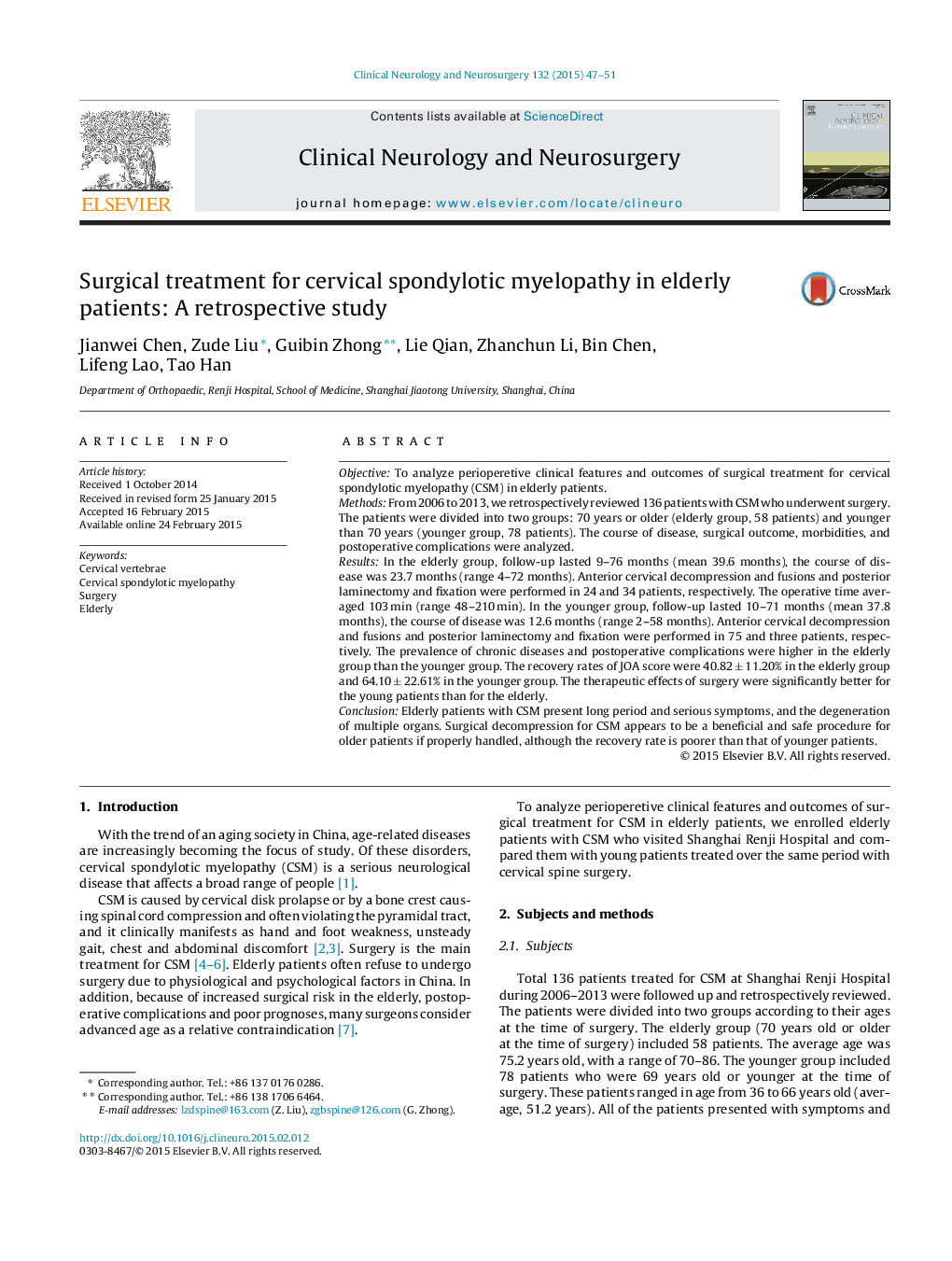| Article ID | Journal | Published Year | Pages | File Type |
|---|---|---|---|---|
| 3039927 | Clinical Neurology and Neurosurgery | 2015 | 5 Pages |
•Compared the outcomes of surgery for CSM in elderly and young patients.•The improvement one week after surgery was not significantly different between elderly and young patients.•No significant difference was found between elderly and young patients with course of disease < 12 months.•Surgical decompression for CSM is beneficial and safe for aged patients if properly handled.
ObjectiveTo analyze perioperetive clinical features and outcomes of surgical treatment for cervical spondylotic myelopathy (CSM) in elderly patients.MethodsFrom 2006 to 2013, we retrospectively reviewed 136 patients with CSM who underwent surgery. The patients were divided into two groups: 70 years or older (elderly group, 58 patients) and younger than 70 years (younger group, 78 patients). The course of disease, surgical outcome, morbidities, and postoperative complications were analyzed.ResultsIn the elderly group, follow-up lasted 9–76 months (mean 39.6 months), the course of disease was 23.7 months (range 4–72 months). Anterior cervical decompression and fusions and posterior laminectomy and fixation were performed in 24 and 34 patients, respectively. The operative time averaged 103 min (range 48–210 min). In the younger group, follow-up lasted 10–71 months (mean 37.8 months), the course of disease was 12.6 months (range 2–58 months). Anterior cervical decompression and fusions and posterior laminectomy and fixation were performed in 75 and three patients, respectively. The prevalence of chronic diseases and postoperative complications were higher in the elderly group than the younger group. The recovery rates of JOA score were 40.82 ± 11.20% in the elderly group and 64.10 ± 22.61% in the younger group. The therapeutic effects of surgery were significantly better for the young patients than for the elderly.ConclusionElderly patients with CSM present long period and serious symptoms, and the degeneration of multiple organs. Surgical decompression for CSM appears to be a beneficial and safe procedure for older patients if properly handled, although the recovery rate is poorer than that of younger patients.
